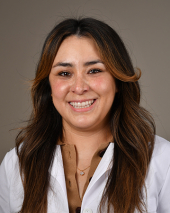
Health is a lifelong journey that requires some self-care along the way. In observance of National Women’s Health Week, Amanda I. Andrade, MD, OB-GYN at UT Physicians Multispecialty — The Heights, breaks down what females should know at every age and stage of life.
Girls and teenage room
The average age a girl begins to menstruate is 13. Whether she starts earlier or later, this is a good time for a developing woman to visit an OB-GYN for the first time.
“A pelvic exam may not even be performed on the first visit. It may just be a time to help them understand how their body and reproductive organs work and then educate them on STD (sexually transmitted diseases) and pregnancy prevention,” Andrade said. “It’s also an opportunity for them to ask their personal questions.”
A young woman should certainly see a gynecologist if she becomes sexually active or has a very irregular menstrual cycle.
20s room
By age 20, every woman should be seeing a women’s health specialist whether or not she is sexually active. She should also start monthly self-exams on her breasts to detect any possible lumps or abnormalities. At age 21, her OB-GYN will begin performing a pap smear, in addition to her annual pelvic exam, to test for cervical cancer.
By now, every woman should begin taking a multivitamin to replenish iron and increase her vitamin D and calcium.
“Women tend to be low in iron because they lose blood during their cycles. Women also need to keep their bones strong,” Andrade said. “The 20s are also childbearing years so they should keep their bodies as healthy as possible should they choose to have children.”
A regular STD test may be advised depending on the person’s sexual activity and risk.
30s room
A woman should discuss her fertility options or reproductive plans with her doctor during her early 30s. If a woman wishes to have a child, she is advised to conceive by age 35.
“Above 35 is considered higher risk for yourself and the child, so we may discuss fertility treatments or the possibility of freezing their eggs or embryos,” Andrade said. “Some women choose not to have any more children. This an important time for discussions.”
An OB-GYN may perform more screenings for cancer, such as a BRCA gene test, if the patient is considered high risk. The doctor will also screen for other health conditions, including anxiety, depression, high blood pressure, and signs of domestic violence.
40s room
At age 40, every woman should start receiving an annual mammogram to screen for breast cancer. At age 45, she should begin to have a yearly colonoscopy procedure to check for colon cancer.
This is also an important time for a woman to do regular, weight-bearing exercises to help fight osteoporosis later.
“Bone mass is produced over years and years. Women who do weight-bearing exercises over a period of time and take a multivitamin, with plenty of vitamin D and calcium, will be in a much better position when they hit menopause,” Andrade said. “Menopause causes women to lose estrogen, and estrogen supports bone growth and fights bone loss. If they haven’t already started, women really need to build up their bones in their 40s.”
50s room
The average age a woman reaches menopause is 51. Whether she starts earlier or later, a woman can expect to experience hot flashes, vaginal dryness, or other bodily changes.
“If the menopause symptoms are intolerable, her doctor can give her nonhormonal treatments to make her more comfortable,” Andrade said. “If necessary, we can also prescribe her hormonal treatment. It’s best for women to start right away when menopause happens because hormones can increase their risk of blood clots if they wait too long after menopause.”
A woman should continue seeing an OB-GYN, after she can no longer have biological children. Her mammograms and colonoscopies should also continue for many years to come.
“The gynecologist will continue to screen for chronic health conditions and cancers,” Andrade said. “Cancer can still occur in the cervix, uterus, ovaries, vagina, and other female organs. Her doctor will continue to check.”
60s & 70s room
At age 65, a woman should receive a DEXA (dual-energy X-ray absorptiometry) bone density scan to detect osteoporosis. This may begin sooner based on her history or risk of bone fractures. Once a woman retires from the workplace, it is an opportunity to continue exercising more regularly to keep her entire body healthier and stronger.
In her 70s, a woman should continue to receive her well-woman exams and other routine screenings. Her gynecologist, however, will stop performing a pap smear at age 70.
80s & 90s room
By age 80, a woman should talk to her women’s health specialist or primary care doctor about safety and emergency plans. The conversation may cover topics, such as ways to avoid falls at home, creating an emergency contact plan, or establishing a power of attorney for a major health event.
“As women get older, they should prepare for the other types of preventive care,” Andrade said. “They should still live as fully and actively as possible, but they may need to be more prepared for any accidents or events that they may not be able to recover from quickly.”
The women’s room
At every age, try to maintain a healthy weight. A woman at a healthy weight is far less likely to suffer from heart disease, diabetes, and other chronic conditions. She is also far less likely to develop complications during pregnancy.
To help prevent obesity and chronic health problems, remain active and exercise regularly. Try to eat a nutritious and balanced diet. Take a supplement to help fill any vitamin and mineral deficiencies.
Finally, a woman is twice as likely to suffer from depression than a man. Should this disorder occur at some point in life, a physician can provide the advice and resources to help. If necessary, the doctor can also prescribe the appropriate medication.
During National Women’s Health Week, make a little room for regular exercise, good nutrition, and preventive care to live well at every age and stage!


